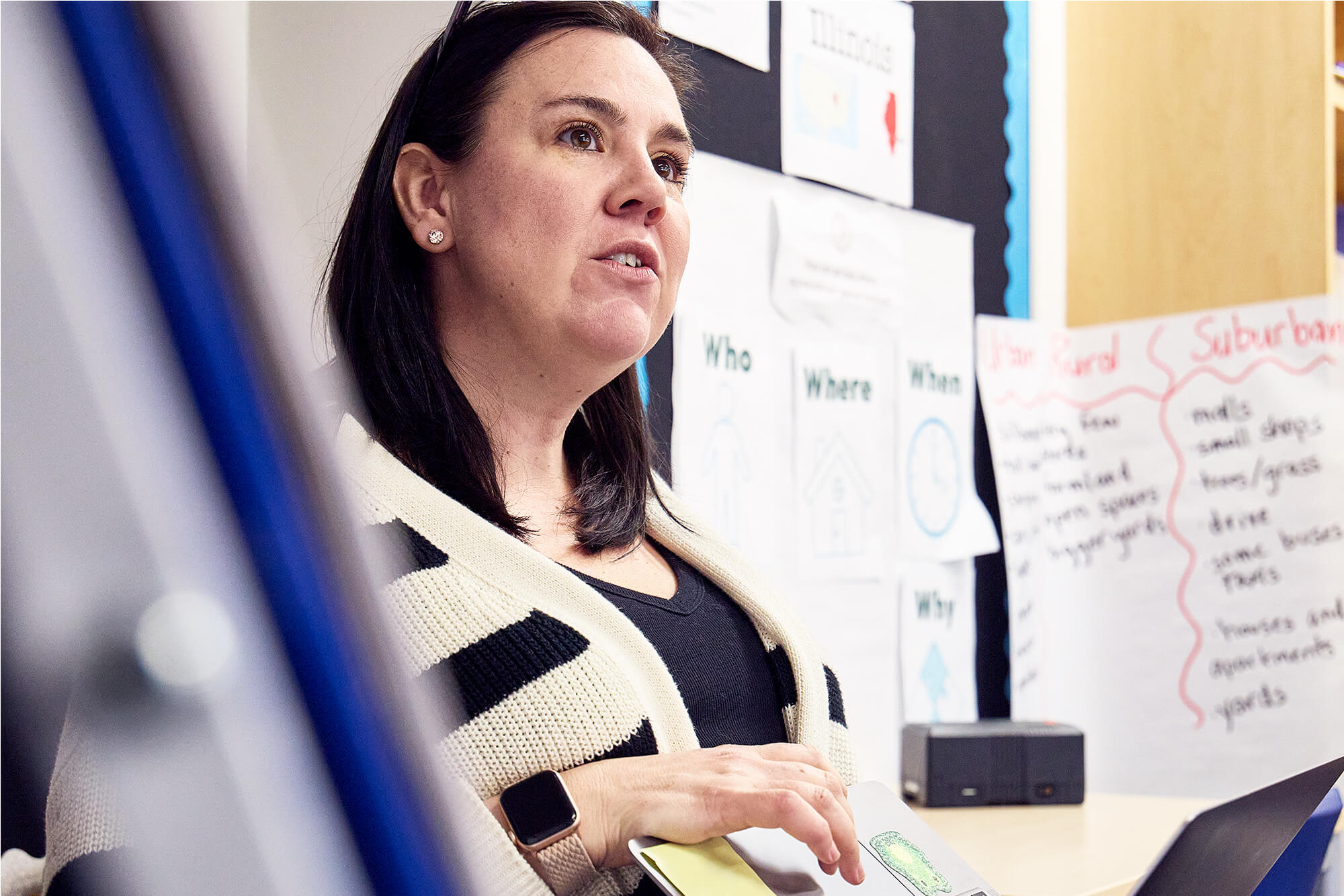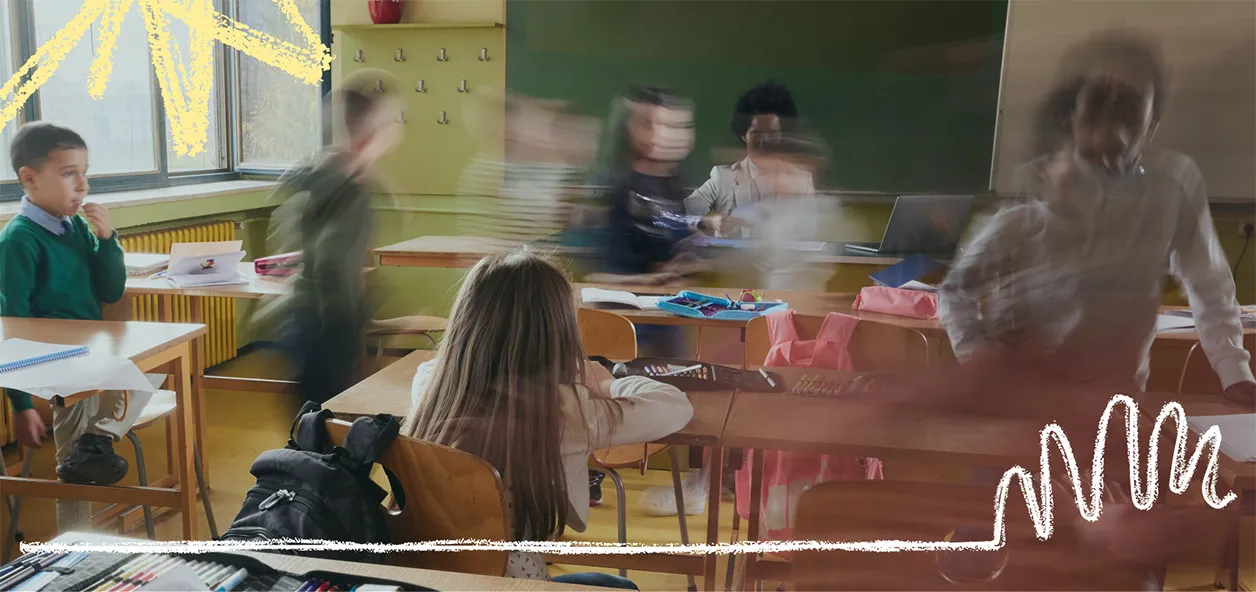How SFUSD Brought Inquiry-Based Social Studies to Life

NOTE: There is no recording for this webinar.
How SFUSD Brought Inquiry-Based Social Studies to Life

Under the leadership of Nikhil Laud, Supervisor of History, Social Studies, and Ethnic Studies, the district is creating a social studies experience that matters: one where students aren’t merely memorizing facts but actively engaging in inquiry, civic thinking, and real‑world problem solving using equitable discussion strategies.
Key Takeaways
- Make speaking and listening a regular part of learning. Structured talk should be built into daily instruction, not added on.
- Choose a curriculum that already includes effective discussion strategies so teachers don’t have to create them on their own.
- Students deserve opportunities to take the knowledge they’ve built and transfer it to their own communities.
Social studies that isn’t for trivia challenges
At San Francisco Unified School District, Nikhil Laud, Supervisor of History, Social Studies, and Ethnic Studies, is leading a districtwide effort to make social studies instruction more relevant, equitable, and connected to the real world. SFUSD needed high-quality instructional materials that helped students make sense of the world around them. A curriculum grounded in civic thinking and application of knowledge was important to that vision.
“We’re not just learning social studies to win a trivia challenge...but how to study problems, how to think about different perspectives, and ultimately, that you take what you’ve learned and try to do something positive with it.” For Laud and his team, this meant finding materials that aligned not only with the C3 Framework and California’s History–Social Science Framework, but also with their vision for civic readiness and literacy equity.
{{testimonial-1}}
When every voice counts, learning deepens
When SFUSD teachers began implementing Inquiry Journeys, they saw a shift in classroom dynamics. With structured support for academic discourse built into every lesson, student talk became more frequent, more purposeful, and more inclusive. Opportunities to share, listen, and build ideas together became a consistent part of how learning happened.
“This curriculum is really...having their students engaging in discussion with each other more. It’s not a sit-and-get type of approach,” shared Laud. “There’s a lot of discourse. There’s a lot of academic conversation. There’s a lot of opportunities for students to share with others and collaborate.”
This is possible because of the equitable discussion strategies built into Inquiry Journeys lessons. These strategies offer clear, practical guidance to help teachers facilitate talk that is meaningful and purposeful. Whether it’s a turn-and-talk, a structured protocol, or a Socratic seminar, students have the support they need to speak, listen, reflect, and connect their ideas with others.
Equitable discussion strategies in Inquiry Journeys
Equitable discussion strategies are routines embedded in every lesson that help teachers facilitate inclusive, structured conversations to activate student thinking, support academic language, and build knowledge through repetition and reflection. Examples of equitable discussion strategies:
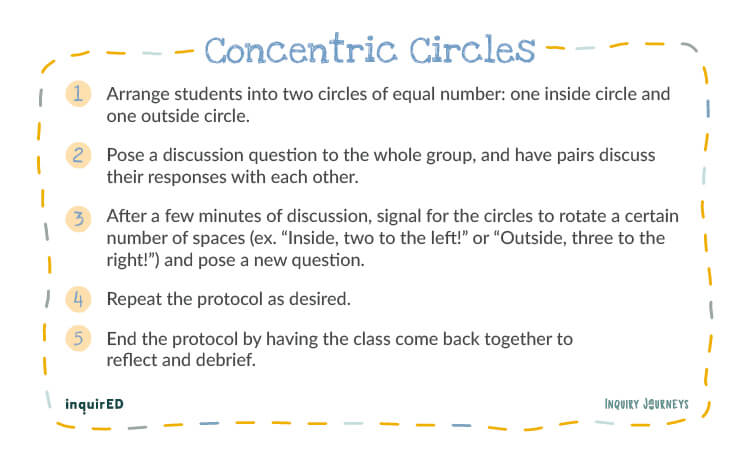
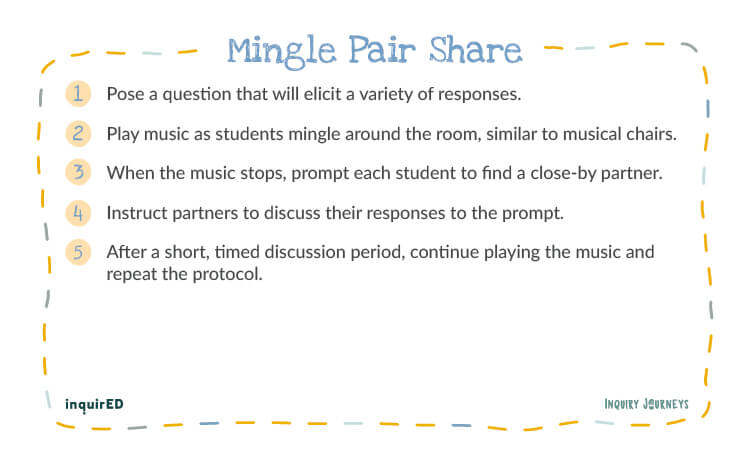
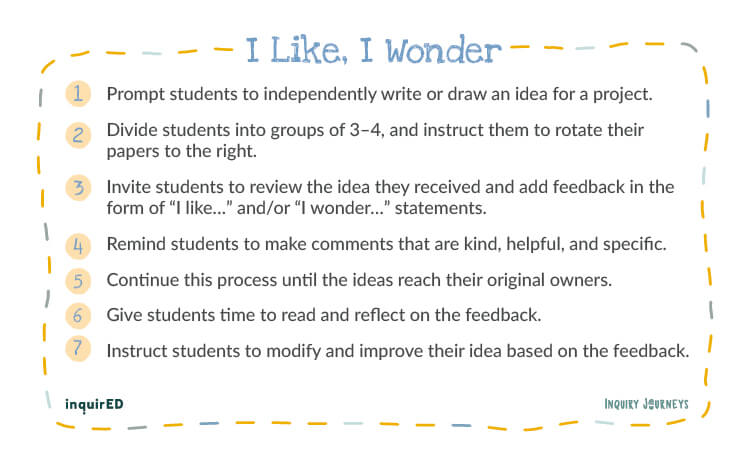

As discourse became a regular part of instruction, students at SFUSD developed language skills, and they gained a sense of belonging and purpose. They saw that their ideas mattered, that listening was part of learning, and that their voice could help shape understanding. And as students grew more confident sharing their thinking, they also grew more ready to act on it.
All that talk? It leads to impact.
At Lawton Elementary, a second-grade class brought learning to life through the Changing Landscapes unit in Inquiry Journeys. As they explored how human development impacts the environment, students focused on nearby Lake Merced, where construction near a golf course was affecting local wildlife.
Using Inquiry Journeys’ equitable discussion strategies, students engaged in conversations that helped them share ideas, analyze cause and effect, and propose solutions. Their inquiry moved beyond discussion. With growing confidence and a clear sense of purpose, students crafted a presentation and delivered it publicly at the San Francisco Youth Climate Justice Summit, joining other youth voices to advocate for environmental care in their community.
What started as a classroom conversation grew into meaningful civic engagement, built on thoughtful discussion, active listening, and purposeful action.
“You could see students come to life with this project. They learn presentation skills. They learn research skills. All those things are really the interconnection of problems that don’t just live in one subject area. But really crosscut multiple fields – those are going to be lifelong skills for those students.” –Nikhil Laud
This experience was possible because of a curriculum that builds inquiry into everyday learning, and a district eager to celebrate what students can do with it.
{{download}}
An investment in citizens, not just students
The skills students develop through Inquiry Journeys extend beyond the classroom. They learn to speak with clarity, listen with empathy, and engage with complex issues. These abilities matter in every academic setting, every community, and every future they’ll be part of.
“Looking at just how polarized our society is right now it really speaks to the need for social studies to be prioritized district wide,” Laud shared. And so, SFUSD isn’t just implementing a new curriculum – they’re making a long-term investment in students who can examine problems, consider multiple perspectives, and take informed action.
By grounding instruction in inquiry and purposeful academic discourse, teachers help students build the skills to succeed in school and to participate meaningfully in a democratic society. For SFUSD, this work is about cultivating the next generation of engaged and thoughtful citizens.
Resources
Keep reading
See more of this series
%20(1).webp)
How inquiry-based social studies can support district goals
Inquiry Journeys, a K–5 social studies curriculum, could be the right fit for your district.
Start your journey
Inquiry Journeys, inquirED's K-5 social studies curriculum, engages students in inquiry-based learning, strengthens literacy skills, and supports teachers every step of the way.
Nikhil
History-Social Studies Supervisor
Nikhil
History-Social Studies Supervisor
inquirED was founded by teachers with the mission of bringing inquiry-based social studies to every classroom. Inquiry Journeys, inquirED’s elementary social studies curriculum, is used in schools and districts across the country to help students develop deep social studies content knowledge and build the inquiry skills that are essential for a thriving democracy.





